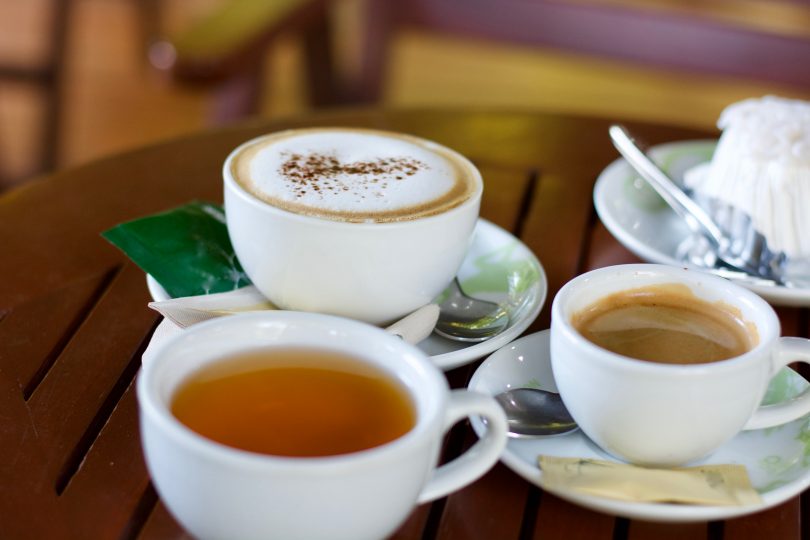The trend of infusing various beverages continues to grow, but to know if you want to sell these types of products in your shop, you first need to understand the trends and why they appeal to consumers.
For the last few years, consumers have been gravitating towards edibles. This is true for both the THC and CBD markets, and it applies to all age ranges. It also includes more than just food, with CBD beverages making up for a large part of the market demand.
CBD can be added to basically any drink imaginable including tea, coffee, kombucha, wine, beer, and even plain old water. Since CBD has no psychoactive effects, it can be used throughout the day, at work, while driving, at the park, anytime. This makes CBD beverages the perfect, discreet way to get cannabinoids throughout the day.
Interested in EU GMP CBD infused beverages? Contact us.
Use the form to subscribe to the CBD Business Weekly Newsletter.
What is CBD?
CBD (cannabidiol) is the second most dominant compound found in cannabis plants. In hemp, which can have both medicinal and industrial uses, CBD is generally the most abundant compound. Unlike THC (tetrahydrocannabinol), CBD does not have any mind-altering effects, making it a more suitable choice for daily therapeutic use.
To date, there are numerous studies highlighting the medicinal potential of CBD, and more research continues to emerge daily. Some of the most observed conditions are anxiety, chronic pain, inflammation, and epilepsy, all of which can be managed by using CBD. There is even an FDA-approved medication that has CBD as the main ingredient, Epidiolex. It’s used to treat two rare forms of epilepsy, Lennox–Gastaut syndrome and Dravet syndrome. Following the U.S., Epidiolex has been approved for use throughout Europe and is undergoing clinical evaluation in Japan.
Unlike other medications, CBD can successfully treat a large number of unrelated conditions, and the reason for this stems from deep within our own bodies, in a network of receptors known as the Endocannabinoid System (ECS). We actually create cannabinoids naturally, called endocannabinoids, which interact with the ECS receptors to maintain homeostasis by managing functions such as immunity, appetite, sleep wake cycles, pain response, and so much more.
Researchers believe that many illnesses stem from a lack of endocannabinoid production. When our bodies are cannabinoid deficient, supplementing with plants is a safe and logical option. Plant-based cannabinoids, called phytocannabinoids, are being isolate to meet this growing need.
What’s the deal with CBD Beverages?
The CBD trend is growing in tandem with the increased demand for healthy food and drinks. Americans are turning away from soda, cigarettes, and alcohol and purchasing more and more cannabis-based products. CBD beverages naturally fit into this mold.
Although not medicinal by any means, CBD beverages are still considered a wellness product and consumers use these drinks to self-treat many different conditions and illnesses. These days, options abound and you can find CBD many of your favorite drinks including tea, coffee, smoothies, and even water. The process of making varies depending on the specific beverage being made.
Although still not completely mainstream, this specific niche is growing steadily. The global CBD Beverages market was valued at $2.09 million USD 1 year ago, and it’s expected to reach $11.38 million by 2025. This accounts for a 27.4 percent CAGR during that time frame. Nothing is official yet, but big-name beverage producers like Constellation Brands and Coca-Cola are already eyeing the CBD market, so we can expect to see these products become more mainstream over the coming years.
CBD water and the concept of bioavailability
Now, here’s where things get a bit more complicated. Although CBD water sounds like a very simple and basic product, it’s anything but. When it comes to CBD water, you’ll likely be confronted with the terms “bioavailability” and “water soluble”. It can be difficult to figure out exactly what these words mean and how everything works. To fully understand bioavailability in reference to CBD products, we’ll have to cover a bit of basic science.

All cannabinoids are lipophilic molecules, meaning they are oil/fat-based compounds that don’t dissolve in water. If you’ve ever tried to mix any kind of cooking oil or motor oil and water, you know that it doesn’t work at all. Since our bodies are roughly 60% percent water, the absorption of oil-based compounds becomes a complicated process.
Bioavailability refers to the amount of the active ingredient that is absorbed by the bloodstream. Water solubility refers to a compounds’ ability to dissolve in water. Expectedly, both of these processes are important when it comes to CBD-infused water. To have CBD-infused water that actually offers the anticipated health benefits, the CBD needs to dissolve in the water, and then be efficiently absorbed by our bodies.
Pharmaceutical and supplement companies have developed various methods to allow the bodily absorption of oil-based compounds. Some of these methods are well-known in the industry such as micro and macro emulsions, nano emulsions, and liposomes. While these methods are all a breakthrough in their own right, there is no certified research or testing to determine how effective they really are in the realm of cannabinoid-medications.
Do you know about Kombucha?
Kombucha is a fermented beverage, very slightly alcohol, that contains live micro-organisms called probiotics, similar to yogurt. It’s traditionally made by combining black or green tea, sugar, carbonated water, and Scoby, which is short for Symbiotic Culture of Bacteria and Yeast. Another popular nickname for these bacteria is “mother” because the organisms reproduce during fermentation.
First used in China over 2,000 years ago, Kombucha has since evolved into a $475 million dollar industry in the United States alone. Since 2016, the total market value has quadrupled, which indicates that this trend is here to stay for a while. It’s sold in cafes, grocery stores, health food restaurants, and farmers markets.
Kombucha is promoted as a natural way to improve many physiological functions including digestion, blood sugar levels, immune system, and it’s said to be detoxifying. This is based on the premise that many ailments stem from issues with gut bacteria. Due to the fact that it can be used for so many different things, adding CBD to it definitely seems like the next logical step.
As popular as Kombucha is, there aren’t any official studies to confirm that Kombucha bacteria has the same effects in the body as yogurt bacteria or other probiotics, but it certainly makes sense. Hopefully more studies will emerge as people continue to buy this product.
What are the benefits of drinking tea and coffee?
It’s estimated that, worldwide, people consume roughly 2.25 billion cups of coffee every single day. When people think of coffee, a quick energy boost is what usually comes to mind. Aside from that extra pep in your step, research indicates that coffee has many other health benefits which include reducing the risk of liver cancer, type 2 diabetes, and heart failure. This is because coffee has some beneficial nutrients such as riboflavin (vitamin B-2), niacin (vitamin b-3), magnesium, potassium, and a boatload of antioxidants (formally known as phenolic compounds).
Start Your Morning Off Right with a Hot Cup of CBD Coffee
Tea is also a popular and beneficial beverage that can help improve your health. According to Qi Sun, assistant professor in the Department of Nutrition at the Harvard School of Public Health, “Tea consumption, especially green tea, may not be the magic bullet, but it can be incorporated in an overall healthy diet with whole grains, fish, fruits and vegetables, and less red and processed meat. It contains substances linked to a lower risk for heart disease, cancer, and diabetes.”
Numerous Harvard-led studies claim that the main health-promoting molecules in tea (known as polyphenols) are similar to those found in coffee, which is why these two beverages have similar health benefits.
Bottles or cans?
This question might seem a bit trivial, but as the CBD beverage industry is shaping up to become an extremely profitable sector, it has just been revealed that alluminium cans absorb nearly all the active cannabinoids out of the beverage. So, anyone who’s been drinking CBD drinks from a can hasn’t been getting any CBD at all.
Researchers believe that emulsified cannabinoid particles attach themselves to the inner lining of the drink cans that’s in place to prevent the cans from rusting once liquid is put inside. This issue was discovered in by the brewer Lagunitas. “The loss was horrible,” a spokesperson told Yahoo Finance. “When I say there is less cannabis, there is no cannabis left. It’s literally 97% absorption into the can after a few months. Guys are saying they solved that problem. Nobody really has.”
This a huge problem considering cannabinoids are the selling point and driving factor behind the pricing of the beverages and advertising structure. The issue is magnified by the fact that some Fortune 500 companies are looking to take a dive into the CBD-beverage market in the near future.
The legal side
The FDA (Food and Drug Administration) has been a stark opponent of CBD-infused food, drinks, and supplements for quite some time now. Many states, including California where cannabis is legal, have banned the sale of these products. This has complicated matters for many businesses who were already selling cannabidiol food and beverages out of their shops, restaurants and cafes.
This, luckily, is on the verge of changing since a Minnesota state representative introduced a bill that would Federal Food, Drug and Cosmetic Act to add CBD to the list of legal dietary supplements and exclude it from prohibited foods and products.
This bill would effectively bypass any FDA interference and make CBD federally legal and thus, all these edible and supplement products will also be legal. If this bill moves quickly, many of the business owners that were fearful they would have shut everything down can finally feel secure.
Final thoughts
To summarize, CBD beverages are here to stay. Are they something you want to sell in your store or online shop? If so, you’ll want to make sure you understand how these drinks work, which ones have the best ingredients, and which ones appeal to customers the most.
For more articles like this one, subscribe to the CBD Business Weekly Newsletter.









